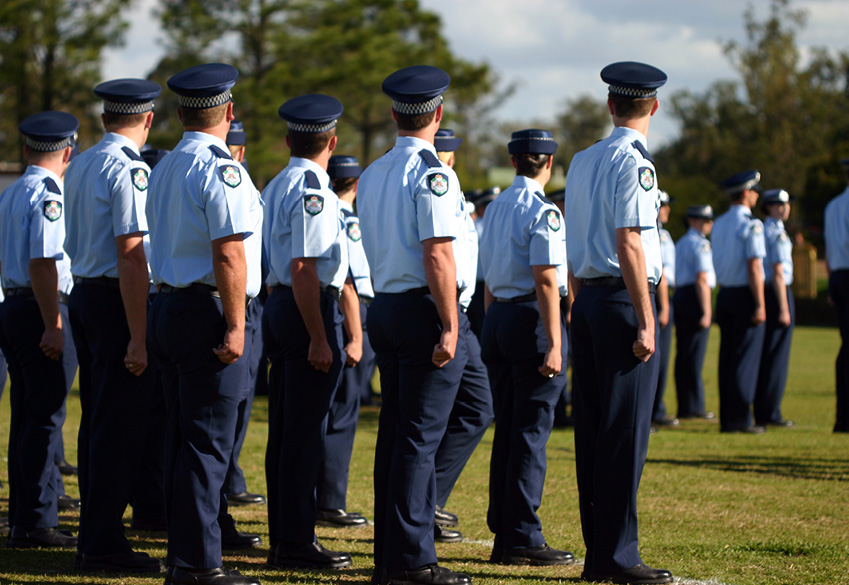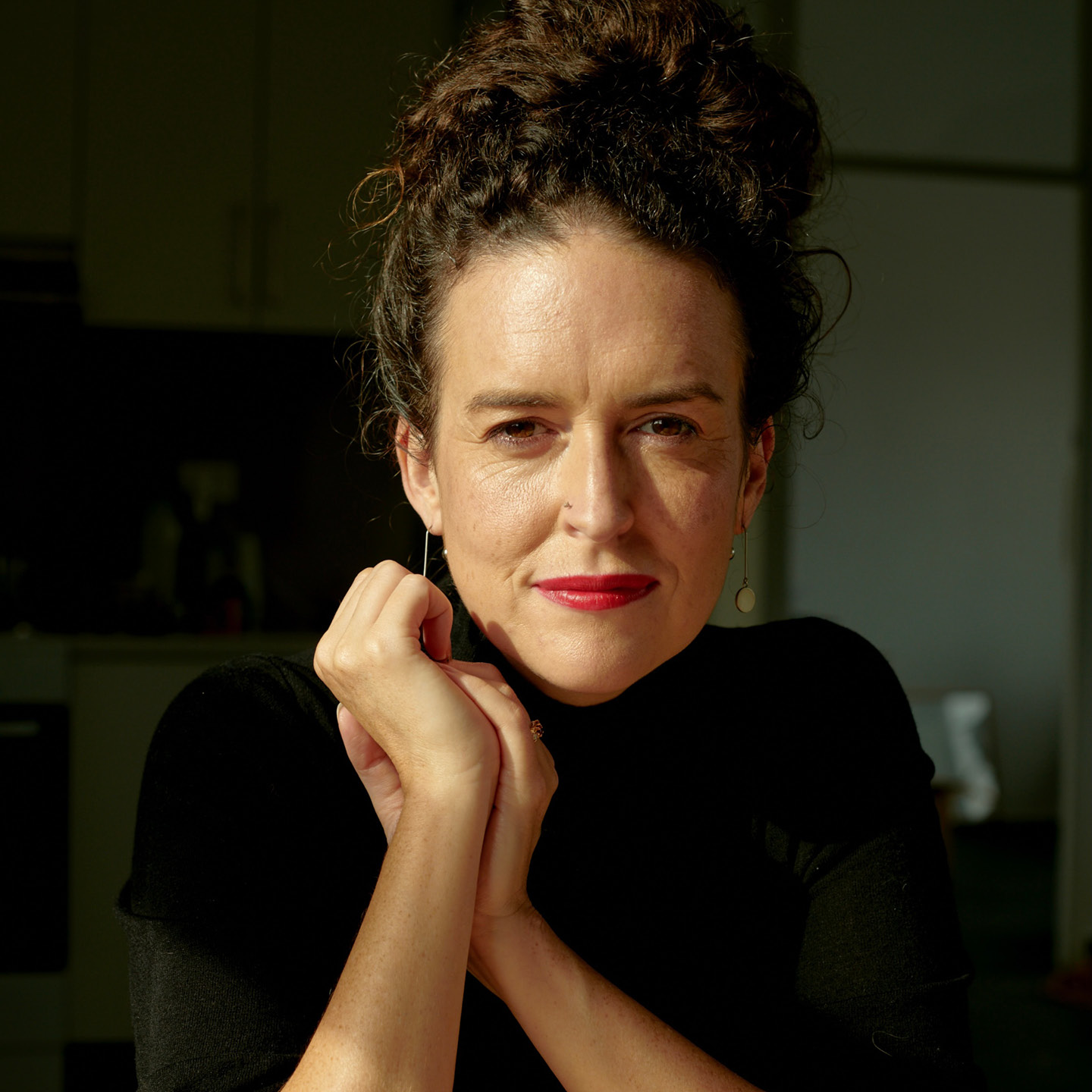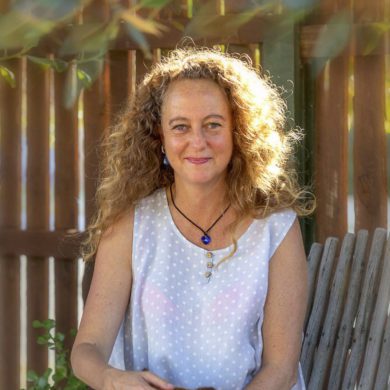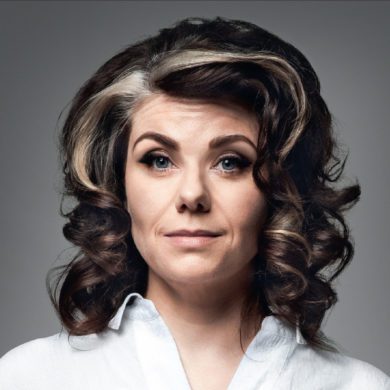In Victoria, a woman who cannot be named is leading a movement to make police accountable.
Her inbox is a site of rebellion, trauma, solidarity and politics. Every week, ‘Michelle’ is contacted by women whose violent partners and husbands are serving police members.
They find out about Michelle through word-of-mouth – a savvy caseworker, even from other serving police – or through Twitter, where she tweets as @Thebluetake.
The ‘police wives’ who contact her have all been subjected to extreme coercive control. All feel desperately alone; not only because of the abuse, but because of how they have been treated by police.
It’s a scenario that Michelle (who is anonymous to preserve her children’s privacy) understands all too well. In 2020, her ex-husband was convicted of domestic violence, having pleaded guilty to 70 offences, including strangulation and severe physical assault.
At first, Michelle thought she was an outlier, that being victimised by a servicing police officer was a rarity – a perception, she says, that Victoria Police actively encouraged.
“I thought I was genuinely the only one. I kept being told by Victoria Police that it was rare,” she says. “It wasn’t until I was in a refuge in Canberra that this worker from DVCS (Domestic Violence Crisis Service) said ‘Oh no, we get police wives coming up all the time’” she adds. “I met two other abused police wives in Canberra. It was a revelation.”
I thought I was genuinely the only one. I kept being told by Victoria Police that it was rare.
Now, Michelle runs a private support network for victim survivors of “officer involved domestic violence” (the official term for abusive officers), and over the past two years she has been contacted by hundreds of women whose violent partners and husbands are serving police members.
Their first contact with Michelle always follows the same script. “They all start by saying, ‘You’re gonna think I’m crazy…’” says Michelle, who explains that women then go on to recount stories of reporting the abuse to police, only for their claims to be dismissed or minimised. It’s not uncommon for police to warn victim survivors that reporting the abuse could have employment consequences for the perpetrator – and knock-on financial consequences for their family.
Frequently, victims will raise concerns about having their devices monitored and tracked (sometimes with the assistance of other police officers and police systems), only to be told by police investigators that this isn’t really stalking because it’s ‘well intended’, or because the perpetrator ‘just has PTSD and is harmless’.
None of these anecdotes come as a surprise to Michelle because of her own experience.
When her ex-husband pleaded guilty, he was the first Victorian police officer in five years to be convicted of domestic violence.
The judge described the offending as serious, persistent and violent. And yet Michelle’s ex-husband remained a full police member on full pay until nearly a month after he was convicted and sentenced to jail. Victoria Police didn’t end up firing him – he resigned.
But the process of getting that conviction was so dangerous, it could have ended with him killing Michelle and her kids. Leaving is the most dangerous time for any victim survivor, but for Michelle’s family, that danger was multiplied by the actions of Victoria Police.

After three years of coercive control, which included severe physical and sexual violence, Michelle and her kids decided to leave – knowing full well the enormous risk they were taking. This man had a gun, he had access to the police database, and would have the resources to find them if they went into hiding.
Despite the fact her husband was a serving police officer, Michelle still had enough trust in the police service to reach out for help.
As she prepared to leave, she wrote to a detective sergeant who worked in a family violence unit in Melbourne, informing her of her plans to flee with the kids to Sydney.
Despite everything Michelle had said about the severity of her husband’s violence and control, that officer leaked Michelle’s safety plan directly to her perpetrator’s manager.
The excuse for leaking it? “She was like, ‘Oh, well, we had to do it, because you were going to blindside him and leave him and we need to make sure he was supported,’” Michelle recalls bitterly.
“They were the words she used, that’s in police documentation – blindsiding someone by leaving them, because you were a victim of domestic violence. The use of that term, ‘blindsiding’, says so much, doesn’t it?”
The consequences for Michelle and her kids were almost fatal. “He ended up hitting my daughter in the head, he went after my son, I got thrown up against a wall, I got punched in the face, and I got raped. It was definitely a control, teach-you-a-lesson rape.”
He ended up hitting my daughter in the head, he went after my son.
Through sheer will and courage, Michelle and her kids did escape. Since then, Michelle has dedicated herself to ensuring there would be consequences not just for her ex-husband, but for the entire police service.
Slowly but surely, Michelle is not only building an army of OIDV survivors, but she is also working relentlessly to reform police services across the country. Piece by piece, she is trying to close every loophole that enable police perpetrators of family violence to keep their badge.
“It’s very difficult in Victoria to discipline a police officer, because of how the Victoria Police Act is drafted and how, under the influence of the Police Association, Victoria Police interprets it and applies it.”
Disciplining officers requires a detailed discipline brief to be put together, she explains, followed by a hearing. “It’s difficult to suspend them, and it’s even more difficult to fire them,” she says, adding that the process is time-consuming and resource-intensive.
Michelle laments that Victoria Police generally won’t discipline officers until after criminal proceedings have concluded. In the meantime, police officers are free to call on colleagues to testify on their behalf in court.
“I was alone in court. He was still a cop and had his boss and his mates there on police time. That culture has to change.”
I was alone in court. He was still a cop and had his boss and his mates there on police time. That culture has to change.
“I’m pushing really hard on that because you can’t change culture with training. You can have all the policies and training in the world, but if no one gets held to account, if excusing, enabling and supporting abusers is fine – if your culture is toxic – nothing’s going to change.”
The strategy Michelle and her network are working on is multi-pronged.
Initially, she focused on changing the media narrative on policing from one that revolved around ‘good guys’ doing their best, to a new story that reveals police perpetration. Going public with her own story (albeit anonymously), and providing journalists with other victim survivors, launched the issue of officer-involved domestic violence onto the national agenda.
The rest of the strategy is multi-faceted. Some parts are big: like the legal action Michelle is taking against Victoria Police for leaking her safety plan. This has come at an enormous cost: she had to sell her house to fund a lawyer to represent her and thanks to delays instigated by Victoria Police, the case has been running for three years, which has been incredibly harmful to both her and her children’s mental health.
But Michelle isn’t just running the case to get compensation – she wants to set a new precedent. “No Australian police force owes a duty of care to family violence victims. I’m arguing that police have a specific duty of care to child family violence victims, so that even if the mother says she doesn’t want them to do anything, police have a duty of care to those child victims, and they must get some support in there while keeping them with their mother.”
I’m arguing that police have a specific duty of care to child family violence victims.
“That’s why I’m running this case – to set that precedent. And if individual police officers can be sued – as I’m doing, in suing the individual police officer who leaked our safety plan – well, that will change things.”
Michelle is also fighting to change the way police complaints are handled and investigated. In Victoria, almost every complaint about police is investigated by fellow local police rather than Professional Standards police, and in country areas – police who often know or work with the perpetrator. The reasons given for this are resourcing and practicalities, but for victims it results in concerns about confidentiality, whether they’re taken seriously and whether reporting makes them more unsafe.
Self-regulation is impractical in any industry, but it’s especially impractical – and dangerous – in the police service. “Police are trained to protect the colleague next to them, because that person has to protect them if they come under fire. So, they treat (allegations) as an ‘officer down’ situation, and they don’t believe you.”
The only way to properly regulate family violence within the police service is to have a separate investigative body with actual enforcement powers, argues Michelle.
She wants to see an oversight model akin to the police ombudsman in Northern Ireland, which is lauded for its willingness to take on the police force. “We need a body that delivers proper oversight and accountability, and one that can impose penalties, so you don’t get another situation like mine.”
“The officer who leaked our safety plan was found to have acted unlawfully; for that she got workplace guidance, and still works in a family violence unit. She refused to apologise, and they wouldn’t make her. Under the Northern Ireland model, she probably would have lost her job. At the very least she would have been made to apologise, and she’d have been moved out of family violence and monitored.”
These are just a few of the reforms, big and small, that Michelle and members of her support network are fighting for. The scope of their advocacy is broad and strategic.
Michelle herself is a lawyer and brings a background in political strategy to this work.
But the work also takes an enormous toll. When things have been particularly bad, it’s been other victim survivors in Michelle’s network that have reminded her why she must keep fighting.
“One woman called me one day when I was in a really bad way. She was pretty sweary, and she said: ‘You need to fight this because you can – you’ve got credibility, because he got convicted. Our guys haven’t been convicted. You’ve got the trifecta: legal knowledge, knowledge about police, and a conviction. You’ve got to do this for us, not just for you, so you better stick around, or I’ll kick your butt on the astral plane.’
“There were a few other F words in there, too,” Michelle says, with her characteristic mirth. “That really stuck with me – I remember laughing, but also thinking – she’s right.”
Want more stories like this? Sign up to PRIMER’s free weekly newsletter.













1 Comment